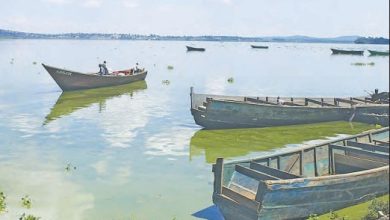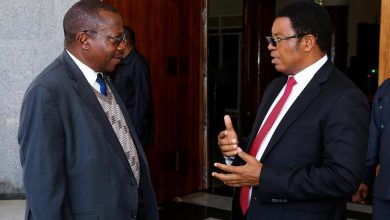It’s dusty peace, warm encounters when an old biker crosses Tanzania

DAR ES SALAAM: IN an age dominated by speed and instant access, more travelers are turning away from air travel’s convenience in favor of the slow, uncertain adventure of driving across continents.
These journeys, often measured in thousands of miles and months, are offering something that curated itineraries and cruise packages can’t, a front row seat to the world’s ever-changing geography, cultures, and ways of life.
The global rise in road travel began accelerating during the COVID-19 pandemic, when border closures and safety concerns grounded international flights.
People turned to vehicles as mobile sanctuaries, safe, self-contained ways to explore the world outside their windows.
Currently, data from international travel forums and overlanding communities shows a 40 per cent increase in long-distance vehicle journeys compared to pre-pandemic years.
In addition, Social media platforms are flooded with van life diaries, border-crossing videos, and cinematic roadscapes, inspiring others to take to the road not for escapism, but for deeper connection.
Unlike traditional tourism, road trips place travelers in direct contact with unfamiliar environments and unexpected moments, from getting lost in a Moroccan village to being offered tea by strangers in rural Iran.
The road also becomes a mirror, solo travelers speak of the mental clarity that comes from long hours of driving, the unexpected joy of breakdowns turned bonding moments, and the slow transformation that comes from constantly adapting to new languages, climates, and customs.
Travelers describe learning to “read the road” not just in terms of geography but also sensing kindness and opportunities.
Among other travelers is Christian de Massy. Born on January 17, 1949, on Monaco’s then‑national day, he is a Monegasque noble, making him the first cousin to Prince Albert II, the current reigning monarch of Monaco.
His mother, Princess Antoinette, was the elder sister of the former Monarch, Prince Rainier, Albert’s father.
Additionally, his grandfather was Anthony Noghes, the visionary who created the Monaco Grand Prix and the famed Monte Carlo Rally.
He has ridden farther than most dream from the Arctic cliffs of North Cape to the storm-lashed rocks of Cape Horn, across the vast silence of Alaska and the wild edge of Ushuaia, the world’s four Geographic extremes. (C2massy).
Yet it’s his own restless spirit and passion for exploration that define him. His journey wasn’t limited to roads and racetracks.
Straddling a 300-kilogramme motorbike, he ventured through Africa, guided not by maps or schedules but by curiosity, faith, and a thirst for genuine encounters.
ALSO READ: Tanzania, Kenya resolve air travel restrictions dispute
From Cape to horn to Luanda, Lusaka to the dusty streets of Dar es Salaam, his journey became a testament to both the challenges and charms of road travel, especially in Tanzania, a country that etched itself deep into his heart.
Christian’s Tanzanian journey began in Mbeya, continued through Iringa and Morogoro, and eventually brought him to the bustling chaos of Dar es Salaam.
Arriving in Dar es Salaam, the chaos didn’t subside; it multiplied. The roads were packed with trucks, and navigating this terrain on a heavy motorbike was not for the faint-hearted.
“The experience was intense, the road surface often warped into deep ruts by the weight of countless trucks, making overtaking a calculated risk,” he said.
In cities like Dar es Salaam, traffic surged like an unpredictable tide. Despite the apparent disorder, trucks and bikes moving in all directions, one-way streets ignored, there were remarkably few accidents.
“It’s chaotic but functional. A bit like Naples, but with more smiles and a welcome gesture,” he noted.
What Christian didn’t expect was how consistently kind and composed Tanzanians were, even under pressure.
From police officers to truckers, hotel staff to street vendors, everyone exuded a calm energy.
During one humorous episode, he was pulled over for speeding at 150 km/h. Bracing for the worst, he jokingly asked the police if they had just stopped him to have a picture with the bike.
To his surprise, the officers burst out laughing. No bribes, no harsh words, just a friendly exchange.
“Such moments stood in stark contrast to my experiences in Europe or America.
“In France or the US, police encounters are serious, even tense. Here, it’s all smiles,” he added.
From there, he crossed over to Zanzibar, before returning to Dar, still mapping out his potential adventure to Mount Kilimanjaro.
He eventually reached Zanzibar, a place that impressed him deeply. The architecture reminded him of Cartagena, Colombia, though the streets were even narrower.
Mauresque influences gave the old town a mystical air. While white tourists were more common here, most of his time in Africa was spent as the only foreign face in a crowd, something he found refreshing.
The food reflected the region’s Indian and coastal influences—spiced seafood, rich curries, and vibrant flavors.
Unlike some travelers, he handled the spices well. He even compared this favorably to Angolan ‘fungi’ and Mexican street food he’d tried before.
Christian’s ride through Tanzania was filled with contradictions, beautiful chaos, dusty peace, and warm encounters in the middle of exhausting days.
But perhaps that’s the magic of road travel, it strips away the superficial and forces you to feel the soul of a place.
In Tanzania, Mr De Massy didn’t just find a destination. He found a connection.






845106 266667As I internet site possessor I think the articles here is really great, regards for your efforts. 437279